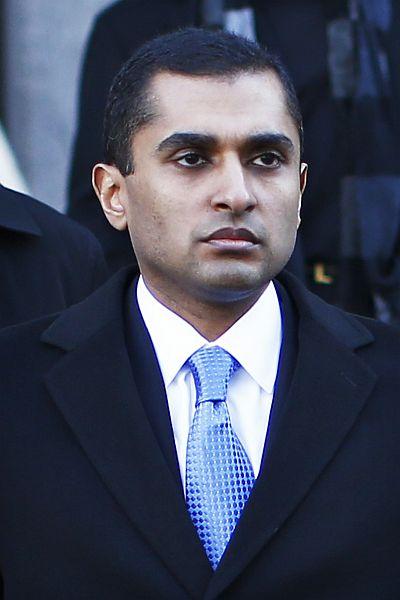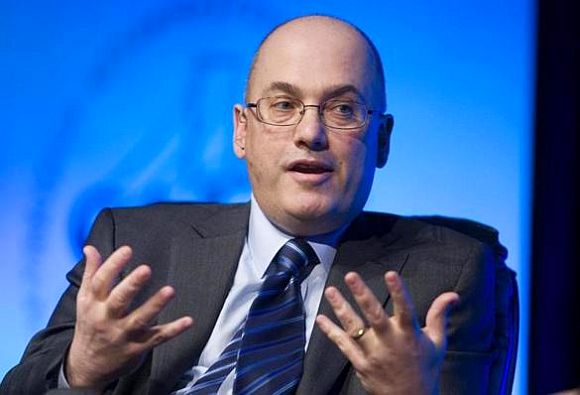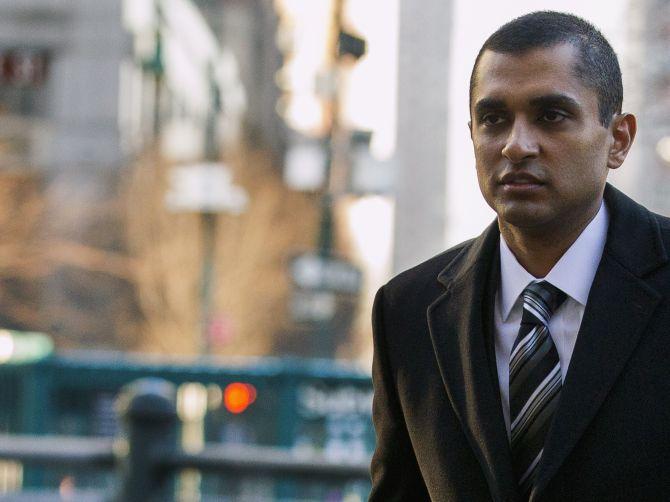 | « Back to article | Print this article |
Is Mathew Martoma's conviction justified?
An SAC Capital case is starring on Broadway, but a Chicago verdict should steal the show.
New York prosecutors added a notch to their belts with a conviction on Thursday of Mathew Martoma, a former trader at the hedge fund run by billionaire Steve Cohen. Of course, it's also a reminder that the big boss has slipped away.
And the case doesn't help define fuzzy insider trading rules. The Illinois lawsuit accomplishes more on that front.
Click NEXT to read more…
Is Mathew Martoma's conviction justified?
Manhattan's US Attorney's office is now 79-0 in insider trading prosecutions since 2009, but Martoma's is a standout.
According to the government, he illegally helped SAC reap more than $275 million in combined profit made and losses avoided, a record amount for such cases.
The office immediately touted its victory in a series of tweets.
Click NEXT to read more…
Is Mathew Martoma's conviction justified?
The celebratory missives highlighted, however inadvertently, the failure to nab Cohen. Prosecutors extracted $1.8 billion from his hedge fund in November and he still faces a Securities and Exchange Commission lawsuit.
Yet Martoma's trades allegedly were made after consultations with Cohen and so were considered a missing link to criminal charges against him.
That possibility faded when Martoma refused to cooperate.
Click NEXT to read more…
Is Mathew Martoma's conviction justified?
As all this played out under the media glare, an arguably more important dispute was quietly decided in Chicago.
It involved Rex Steffes, a railroad employee who listened to office rumours, fielded odd financial questions and watched strange men tour train yards before concluding his company was a takeover target.
He and family members bought stock and call options, made a modest killing - and were promptly sued by the SEC for illegal insider trading.
Click NEXT to read more…
Is Mathew Martoma's conviction justified?
Last week, a federal jury acquitted the Steffes family, something the commission acknowledged on Tuesday in a two-sentence statement. The verdict deserved considerably more attention.
Far more common than cases like Martoma's are those like the one involving Steffes, where savvy research or even educated guesses result in a lucrative transaction.
Insider trading law doesn't clearly distinguish between the two.
By signalling that diligent legwork won't necessarily lead to jail, the jury in Chicago helped clarify the law.
It's not the kind of ruling that can compete with Cohen and the bright lights of Broadway, but for attorneys and judges it's a more insightful drama.

© Copyright 2025 Reuters Limited. All rights reserved. Republication or redistribution of Reuters content, including by framing or similar means, is expressly prohibited without the prior written consent of Reuters. Reuters shall not be liable for any errors or delays in the content, or for any actions taken in reliance thereon.




